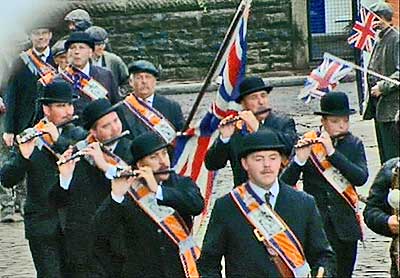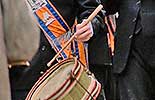POLITICS
At the beginning of the 20th century Ireland was a united country. However, the political and sectarian divisions between Protestants and Catholics that would eventually lead to the Partition of Ireland in 1920 were intensifying.
The Protestant Unionists wanted Ireland to remain ruled by London while the Catholic Nationalists wanted to be free of London and argued for Home Rule.

Most of the workers at Harland & Wolff were Protestant Unionists and just one worker in eight was Catholic. Initially they got on well together and formed friendships across sectarian divisions. But as the arguments over Home Rule intensified and became increasingly bloody, violence spilled over into the shipyard of Harland & Wolff. The most militant Protestant workers started to attack their Catholic colleagues.
Lord Pirrie unintentionally brought the violence to boiling point. He had always been a Unionist but overnight switched to Nationalism. He had political ambitions. He thought he would further his ambitions by inviting Winston Churchill to speak in favour of his newly chosen Nationalist cause. There was a revolt against Pirrie. His Unionist workers armed themselves with the rivets they had used to stitch the great hull of the Titanic together and there were guns on the streets that day too. Pirrie was forced to flee Belfast. He never saw his great vision again and never returned to Belfast. He died a broken and bankrupt man.


